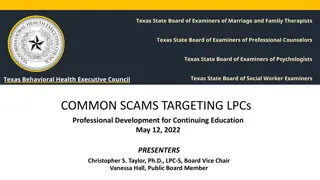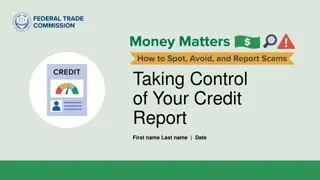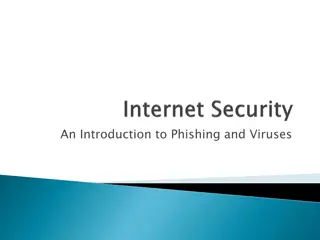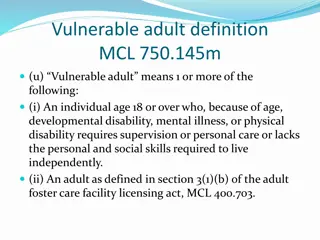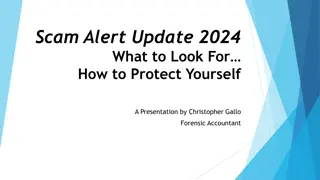Understanding and Preventing Scams: A Comprehensive Guide
Scams can affect anyone, with victims often being over 55 years old. Organized criminals utilize various techniques such as befriending, grooming, and manipulation to exploit individuals. Common scams include identity theft, email scams, and fake job adverts. It's crucial to remain vigilant, never giving out personal information or remote access to devices. Follow top tips like verifying callers and never transferring money to unknown accounts to protect yourself from falling victim to scams.
Download Presentation

Please find below an Image/Link to download the presentation.
The content on the website is provided AS IS for your information and personal use only. It may not be sold, licensed, or shared on other websites without obtaining consent from the author. Download presentation by click this link. If you encounter any issues during the download, it is possible that the publisher has removed the file from their server.
E N D
Presentation Transcript
Scam Awareness Presented by: Eve Curran 17 September 2021 Document Classification: Public
2 Anyone can be affected by scams 53% of victims are over 55 1,005 average sum of money stolen in Ireland by fraudsters Only 5% of scams are reported
3 Types of scams 1 2 3 4 Postal scams Telephone scams Doorstep scams Online scams Have you ever been involved in one of these Scams?
4 How the cycle works Victim responds to scam Personal details added to a victims list Victim loses money Victim Criminals target the victim receives more scams approaches
5 Scams are the product of organised, predatory criminals who gain trust to exploit and steal money Befriending and grooming techniques Appear legitimate Helpful Persuasive Persistent Friendly Charming Threatening Aggressive Intimidating
6 Common scams impacting younger generation Identity Theft Money Mules Fake Job Adverts
7 Text/Email Scams
8 Top Tips Never give remote access to your laptop or home computer Always verify the caller using an independently verified telephone number such as one from our website / back of your bank card The bank or police will never ask you to move your money to a safe account . You will never receive a genuine call to tell you your Wi-Fi or internet is slow
9 Top Tips Be extra careful if you receive any phone calls, texts or emails from anyone claiming to be a bank or other trusted organisation. A genuine bank or organisation will never contact you out of the blue to ask for your PIN, full password, card reader codes, passcodes, or to move money to another account. Personal information is yours. Don t give it away. Never click on a link received in an email or text that then takes you to a website requesting personal information or login details. Always go via a search engine or direct to the company website. Never allow remote access to your computer by any third party. Scammers will often ask you to download an app or will send you email with a link such as Team Viewer. Watch out for poor grammar or spelling on emails/printed material/letters. Stop and think about what you are being asked to do. If concerned, stop and talk to your family or a friend.
10 Help & Support Ulster Bank Security Centre Friends Against Scams video If you think you ve been a victim, contact your bank in the first instance Ulster Bank Customers Download Malwarebytes Premium Talk You are not alone and shouldn t feel embarrassed
11 Questions & Answers


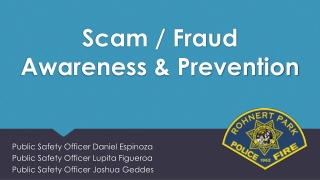

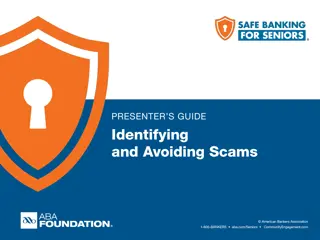
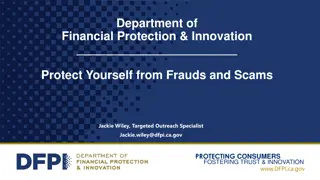
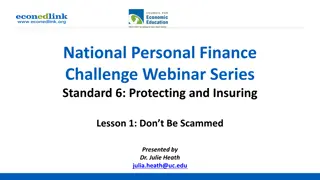
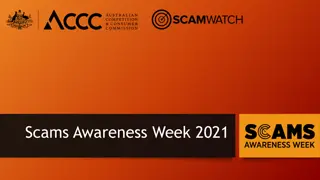




![101 Reviews How to Recover Lost Bitcoin [Scammed/Stolen Funds]](/thumb/153354/101-reviews-how-to-recover-lost-bitcoin-scammed-stolen-funds.jpg)
